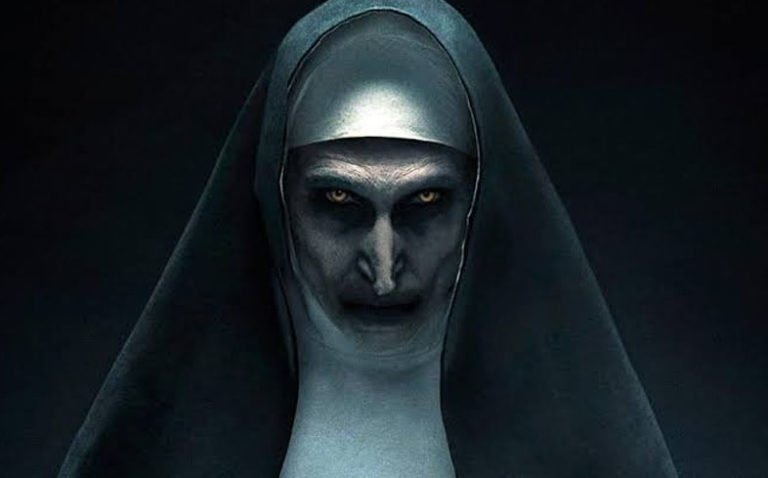Why do we watch scary films?
Dolf Zillman
Excitation-transfer theory purports that residual excitation from one stimulus will amplify the excitatory response to another stimulus, though the hedonic valences of the stimuli may differ. The excitation-transfer process is not limited to a single emotion.[2] For example, when watching a movie, a viewer may be angered by seeing the hero wronged by the villain, but this initial excitation may intensify the viewer's pleasure in witnessing the villain's punishment later. Thus, although the excitation from the original stimulus of seeing the hero wronged was cognitively accessed as anger, the excitation after the second stimulus of seeing the villain punished is cognitively assessed as pleasure, though part of the excitation from the second stimulus is residual from the first.
Catharsis
(from Greek κάθαρσις, katharsis, meaning "purification" or "cleansing" or "clarification") is the purification and purgation of emotions—particularly pity and fear—through art or any extreme change in emotion that results in renewal and restoration.
SIGMUND FREUD
The Psychoanalytic community, including Sigmund Freud himself posited that horror came from the “Uncanny” – emergence of images and thoughts of the primitive id that were being suppressed by the civilized ego. Jung thought that horror movies tapped into primordial archetypes buried deep in our collective subconscious – images like shadow and mother play important role in the horror genre.
DAVID J. SKAL
Finally, DJ Skal posits that horror films are a reflection of our societal fears. Looking at the history of horror you have mutant monsters rising in 50s from our fear of the nuclear bogeyman, Zombies in the 60s with Vietnam, Nightmare on Elm Street as a mistrust in authority figures stemming from the Watergate scandals and Zombies again in the 2000s as a reflection of viral pandemic fears.
Ernst Hartmann
Sees dreams as the brain’s sorting through the bits of information it’s gathered throughout the waking hours. But the images and connections we make while dreaming aren’t totally random, they’re guided by our emotions – maybe working through a recent trauma or dealing with angst and fear.
So perhaps watching a film is somewhere between being awake and being in a dream state. Much like play – films are a safe place where we can sort through stuff, learn skills to apply in everyday life. How do you defeat the a slow walking Jason Vorhees – you can’t outrun his slow stride. The only way is to face him straight on. Though a zombie apocalypse is a far fetched reality, the survivorship skills on display in a zombie horror film have some practical merit in our normal every-day world.
Horror movies require us to face the unknown – to understand it and make it less scary. They allow us to see our fears and put them into context, to play what if, and in doing so, they shape our belief systems, how we see each other and ourselves. They are a safe place to explore and for some just a good bit of fun.
Which of these five explanations do you agree with most and why?
I agree with the first explanation because I can relate to what he is saying about why we watch thrillers. We watch thrillers for the emotions we experience throughout the movie, we enjoy having these emotions especially when we get a satisfying conclusion. And what gives us these emotions is an initial stimuli which creates an initial response within ourselves. Zelman explains that no matter what stimuli it is, we still experience some sort of emotion, this is what gives us the drive to watch thriller films, for the excitement, the emotions of happiness, sadness, guilt, revenge, hatred. As we experience theses emotions we experience what the characters in the movie are feeling, which makes you feel more engaged within the movie whilst watching it.
Can you provide any personal reasons why you think this?
As I said before, I agree with the first explanation. I relate to it as I watch a lot of thrillers. The main reason I watch them is to be entertained and to be satisfied with a good movie. Throughout watching a movie thriller I feel different emotions depending on the story, and an initial stimuli makes me feel this way, causing an initial response in me. So I feel like I can relate to what he is explaining
Which one do you disagree with and why?
I disagree with David J Skal as he talks about Horror films being societal fear. I disagree with this because everyone is different and has their own fears, although a majority of society has the same fears. Yes the movie does do better with the more common fears like Ghosts, Demons, killers etc... But it is the unique movies like The birds by Alfred Hitchcock, demonstrates the fear of birds, although not many people are scared of birds, Hitchcock portrays "the birds" in a scary way to the audience so the movies still does well. Everyone has their own fears, but a majority of people have the same fears.



No comments:
Post a Comment